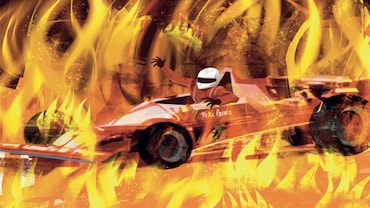- HOME
- /
- Features
- /
- Cover Story
- /
Hearts of Steel: The General and I
They called him Lt. General Zorawar Bakshi, India’s most decorated war hero. I called him father

As a child, when I saw at my father in uniform, it was something I always took for granted. After all, growing up on army cantonments, I lived in an insulated world where my peers were other children within the unit, and their fathers wore uniforms too. Soon, other things also became a normal part of our life: The sense that what my father and everybody like him did for work was something very important; that anyone who met him or talked about him did so with great admiration and respect; that his long, long absences meant he was at the border, fighting a war; that one day he would be back, or, as it happened with some of my friends, he might not.
From fighting with the UN troops in Congo in 1962, to stints on the Jammu and Kashmir border in 1965 and ’71, my father was deployed in nearly every conflict this nation has seen. As a serving officer, through conflict after conflict, he lived along far-flung borders, but once in a while I did manage to spend short bits of time with him, and more so after he retired. We were always a little bit of in awe of him and his presence loomed large even when he wasn’t there. He was strict, but also had a great sense of humour.

Perhaps one of the most cherished principles I always saw him live by was that there must be honour and integrity in whatever one does, or what job one holds. It doesn’t matter what anybody says, as long as you know you are doing the right thing. He was an outspoken man, who called a spade a spade and didn’t mince words. Whatever stand he took, he stood by it. He always had a certain wit and could look at the lighter side of things, especially when life grew dark.
People would often ask him, “Don’t you feel scared? You probably don’t fear death at all.” He replied, “If there’s anybody who tells you that he doesn’t fear death, he’s either a liar or he’s mad. Everybody is afraid of dying. The thing is to get over it, or around it, to do what you have to.”
There’s a story one of his officers once told me. In 1947 he was retreating from Titwal during heavy Pakistani shelling. They were walking on this mountain track with bombs falling all around. “We were so scared,” the officer said. “Then suddenly we hear your father whistling a tune. I said, ‘Why are you whistling?’ He said, ‘Well, if we have to die, we’ll die. But we may as well be a little easy about it while we are alive!”
And that’s what I think he imparted to us also. That things can be as bad as possible, but don’t lose the lighter side of living. It’s something I’ve always lived by, and I guess I owe it to him.






